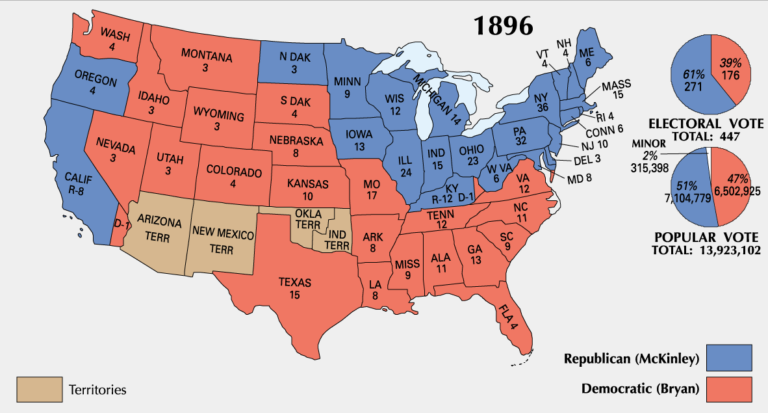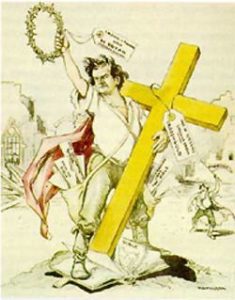Crosses and Gold

There is an interesting map up at Newsweek‘s web site illustrating what the magazine calls “a surprising correlation between the geographic density of payday lenders [a.k.a. storefront loan-sharking operations] and the political clout of conservative Christians.” South Carolina, Alabama, Mississippi, Tennessee, Utah, and, naturally, Missouri were among the leaders in both categories, followed by nearby southern and western states. Ironically, the Christian usury belt roughly tracks with the William Jennings Bryan coalition.
This correlation will not come as a surprise to anyone who has driven U.S. 231 through Alabama (Cottondale to Montgomery on our way back to the Midwest from Tallahassee) or any highway through just about any small city in Missouri. Evangelical churches and storefront lenders are right up there with convenience stores and Subway sandwich shops as your most common roadside attractions. In Alabama, I would throw in BBQ places and pawn shops.
I would not argue that there is any real connection between legal loan-sharking and evangelicalism, if that is the proper term, but the two phenomena do seem to depend on similar markets: economically stressed, poorly educated people who are perhaps a little too trusting or naive in dealing with their local authority figures, be they payday lenders, preachers, or state legislators. That last category is probably the key one. If there was some way to make a map showing “penetration of state government by predatory ‘small business’ interests,” I suspect it would look very much like the one in Newsweek.
Comments:
This article originally appeared in issue 8.3 (April, 2008).
Jeffrey L. Pasley is associate professor of history at the University of Missouri and the author of “The Tyranny of Printers”: Newspaper Politics in the Early American Republic (2001), along with numerous articles and book chapters, most recently the entry on Philip Freneau in Greil Marcus’s forthcoming New Literary History of America. He is currently completing a book on the presidential election of 1796 for the University Press of Kansas and also writes the blog Publick Occurrences 2.0 for some Website called Common-place.

[…] Correlation between locations of evangelical churches and payday lenders (Publick Occurrences). […]
Pingback by jspot » Blog Archive » Roundup: The Faith Based Economy, a Harpsichordist, Karl Rove — February 27, 2008 @ 12:47 pm